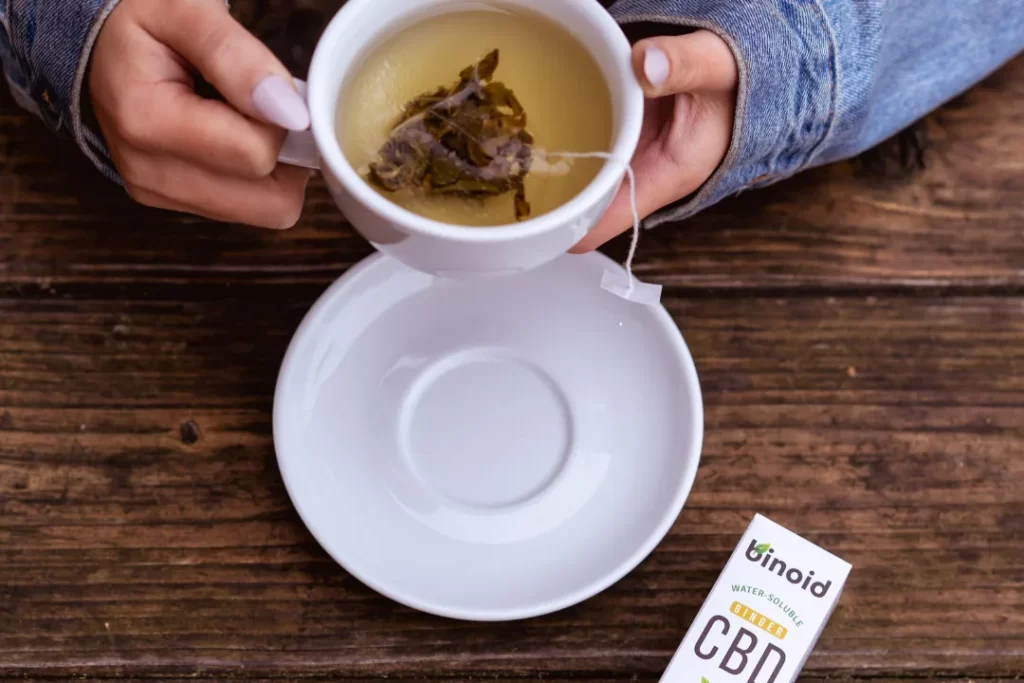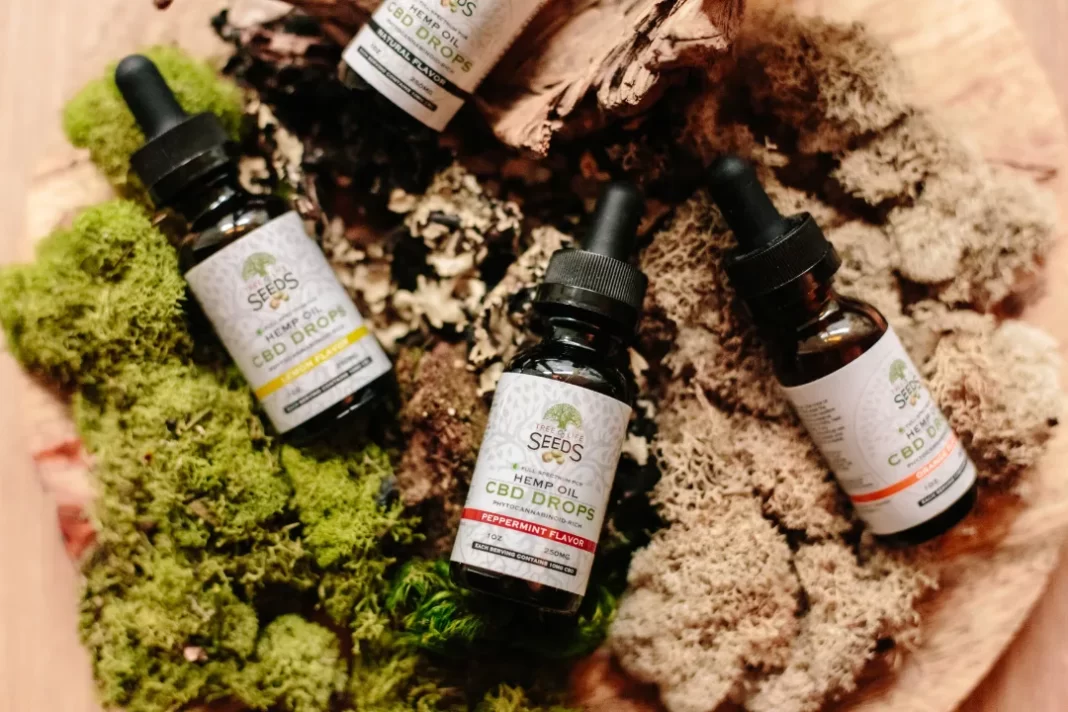CBD is being touted as a useful non-prescription remedy for a whole host of health problems and conditions, from chronic back pain and insomnia to skin rashes and impotence. In this article, we provide a brief history of CBD and discuss its potential uses. How much history does CBD have? Read on to find out.
The wellness community has become sky-high on CBD products with a wide range of wellness applications in recent years. But the benefits of cannabis and hemp-related remedies have been documented for centuries.
You May Also Like:
Private Label CBD Oil: 5 Best Sources
When to Take CBD Oil for Sleep: Timing, Dosing, and the Most Effective Products to Take
Cannabidiol, more commonly known as CBD, is extracted from both hemp and marijuana and has been used for therapeutic purposes for thousands of years.
How Much History Does CBD Have? is an original (HerHealthWatch) article.
How much history does CBD have?
The healing properties of cannabis were touted as early as 2737 B.C. by Chinese Emperor Cheng Neng, who is believed to have used hemp oil to treat pain and to make topical salves for skin rashes and irritation. He also brewed a CBD tea which was used to treat malaria, rheumatism, and gout — and was even reputed to enhance brain function and memory.
How much history does CBD have? Around 1000 B.C., a Hindu text called “The Ahtarva Veda” touted cannabis as “one of the five sacred plants…which release us from anxiety.” The 19th-century Irish physician William Brooke O’Shaughnessy was credited for introducing cannabis to Western medicine. One of his high-profile patients was England’s Queen Victoria who was reputed to use cannabis plants to treat her menstrual cramps.
However, in the United States, cannabis was mostly prohibited beginning in the 1940s. In 1970, it was fully banned as part of Richard Nixon’s Controlled Substance Act, which blasted the plant as having a “high potential for abuse” with “no medicinal value.”

CBD finds the spotlight
How much history does CBD have?In 1964 Harvard-trained chemist Roger Adams identified and isolated CBD from a cannabis plant, and 30 years later, Israeli scientist Dr. Raphael Mechoulam accomplished the same with THC. Their combined work allowed the scientific community to determine that cannabis’ mentally intoxicating effects were largely confined to THC, with therapeutic benefits predominantly from CBD.
CBD sets itself apart
While both were determined to have effects on the brain, only THC was intoxicating — clearing the way for CBD to be developed as a therapeutic agent. North Carolina scientist Allyn Howlett discovered CB1 receptors in 1985 and CB2 receptors in 1993 and determined taking the cannabinoids CBD and THC led to a wide range of therapeutic effects.
In the 1980s, President Ronald Reagan’s administration funded a study to determine how marijuana damages the brain but eventually subsidized a series of subsequent studies that revealed cannabinoids had a positive interaction with the human body.

New legislation inspires new breakthroughs
New Mexico passed the 1978 Controlled Substance Therapeutic Research Act, which enabled the study of the medicinal properties of cannabis, inspiring more states to legalize the use of marijuana as a medication. And as more research on the benefits of cannabis was released by the medical community, clouds of doubt slowly lifted from coast to coast.
How Much History Does CBD Have? is (HerHealthWatch) report.
CBD goes mainstream
How much history does CBD have? California was the first state to legalize medical cannabis in 1996, and in 2018, Epidiolex became the first CBD-based drug for the treatment of epilepsy in children approved by the Food and Drug Administration. Today, a wide landscape of CBD products is available with a broad range of wellness applications.
Recent studies have determined that CBD oil engages with endocannabinoid receptors in the body to reduce inflammation and change the way the brain responds to pain, leading to positive effects in the treatment of muscle spasms, arthritis, and even multiple sclerosis.

Producing positive results
Topical treatments such as Partnered Process’ beeswax-based Partners Relief Muscle Rub soothe body aches and reduce swelling from the hands and feet to the elbows and shoulders. You can easily apply this full-spectrum salve, which is delivered in a cannister for $29.99.
Studies have also shown CBD products deliver positive results in treating depression, anxiety, and insomnia. Compliant gummies from Partnered Process were developed to overcome daily stress with natural delta 9 THC, CBD, CBG, and other minor, but effective, cannabinoids for just $39.99 per bottle. The company’s vegan, full-spectrum CBD2 oil drops provide alertness and tranquility. This product comes in 30 milliliter glass bottles packed with naturally sourced Vitamin D that provides an added boost for just $59.99.
You may experience a range of health benefits with the use of CBD:
- CBD’s soothing effects in topical and edible products have even been shown to reduce some of the underlying physical and psychological causes of erectile dysfunction, by reducing performance anxiety, enhancing mood, and increasing blood flow.
- CBD oil’s anti-inflammatory properties have also been credited for battling acne by regulating oily secretions in the skin.
- Heart health is another area in which CBD oils have been credited with positive effects. Recent studies revealed a single dose of 600 mg CBD may provide positive effects on blood pressure. Furthermore, its anti-inflammatory and anti-occident properties reduce cell damage, improving cardiovascular health.
- Cannabis products have also been shown to alleviate cancer-related symptoms and the side effects of cancer treatments. One 2011 study revealed CBD can shrink tumors and stop them from spreading while another study demonstrated its anti-cancer properties can prevent tumor growth by reducing the advance of malignant cells.
- The health benefits of CBD even extend to improving metabolism and promoting weight loss.
- Research has indicated that CBD can convert “bad” white fat cells to “good” brown fat cells, which fuel the body with energy.

A promising future
With the benefits and availability of CBD products becoming more apparent every day, consumer demand continues to climb. Sales in the U.S. climbed to $4.6 billion in 2020, just two years after hemp-derived cannabinoids were legalized by the federal government.
How much history does CBD have? Its therapeutic success is long and well-documented. Its future is even more promising.
Reference Links:
Cannabidiol (CBD) as a Promising Anti-Cancer Drug National Library of Medicine
CBD for acne: Does it work? Medical News Today
CBD Oil for Erectile Dysfunction: Does It Work? Very Well Health
Disclaimers:
Important Note: The information contained in this article (How Much History Does CBD Have?) is for general informational purposes only, and should not be construed as health or medical advice, nor is it intended to diagnose, prevent, treat, or cure any disease or health condition. Before embarking on any diet, fitness regimen, or program of nutritional supplementation, it is advisable to consult your healthcare professional in order to determine its safety and probable efficacy in terms of your individual state of health.
Regarding Nutritional Supplements Or Other Non-Prescription Health Products: If any nutritional supplements or other non-prescription health products are mentioned in the foregoing article, any claims or statements made about them have not been evaluated by the U.S. Food and Drug Administration, and such nutritional supplements or other health products are not intended to diagnose, treat, cure, or prevent any disease.



